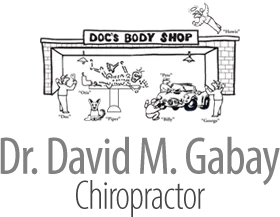Many people have medicine chests in their bathroom, small shelving units filled with bottles of pills, capsules, and tablets. Others, instead, have first-aid and personal grooming cabinets in their bathrooms, containing rows of bandages, tubes of antiseptic, rubbing alcohol, and adhesive tape, as well as dental care supplies, shaving supplies, and sample-size bottles of shampoo. Of course, we can't always draw accurate conclusions about a person's lifestyle and level of health from the contents of his or her bathroom cabinet. But most of us, if we could choose, would likely want to focus on personal grooming and first aid rather than prescription medications. The key question is how we can actually make such a choice.
From the medicine chest perspective, many people have various disorders that require them to take prescription medications on a short-term or long-term basis. Persons with type 2 diabetes need to take regular doses of drugs such as metformin or glyburide. Persons who have rheumatoid arthritis may be taking Imuran, Remicade, or glucocorticoids. If you have persistent high blood pressure, you may be taking a beta-blocker or an ACE inhibitor. If you've just undergone a root canal procedure, your dentist may have prescribed a two-day supply of Vicodin.
But others have medicine chests filled with sleeping pills such as Ambien and Lunesta, cold and flu medications such as decongestants and antihistamines, and mood elevators such as Wellbutrin and Prozac.1 Again, many people have medical conditions that require prescription medications, but many others have come to rely on such drugs even though a sound medical reason for taking medication may no longer exist. In such circumstances, changes in lifestyle may provide more and longer-lasting benefit than that being obtained via use of no-longer-needed medication.
For example, numerous studies have shown that regular vigorous exercise results in profound adaptations of one's personal physiology and biochemistry. Such changes consistently improve a person's mood and allow for a full night of restful sleep.2 Healthful alterations in diet also result in mood stabilization and facilitate deeper, more beneficial sleep.3 Lifestyle changes incorporating both regular vigorous exercise and healthful diets provide enhanced benefit.
Of course, one should never discontinue prescription medications without consulting the doctor who has prescribed them. Implementing your long-term lifestyle enhancements is one of two necessary steps. The second step is letting your doctor know what you're doing and discussing with him or her the possibility of reducing the dose or even going off one or more of the "lifestyle" drugs you've been taking. By taking these steps you've begun the journey of converting your "medicine chest" into something else entirely.
1Tragni E, et al: Prevalence of the prescription of potentially interacting drugs. PLoS One 2013 Oct 11;8(10):e78827. doi: 10.1371/journal.pone.0078827
2Matta Mello PE, et al: Neuroscience of exercise: from neurobiology mechanisms to mental health.Neuropsychobiology 68(1):1-14, 2013
3Hryhorczuk C, et al: Metabolic disturbances connecting obesity and depression. Front Neurosci 7:177, 2013
